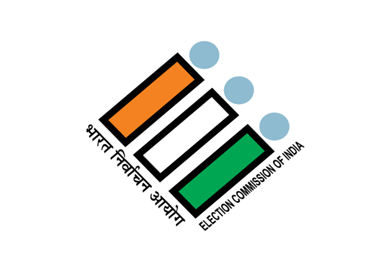WHO MAY VOTE FROM HOME IN LS ELECTIONS?
Syllabus:
- GS-2 -Institutions and its functioning , Form of Government ,Good governance
- GS-4– Impartiality and Probity, Good Governance ,Attitude, Ethics in human interface
Why in News :
- The ongoing election festival and extension of “vote from home ” by Election commission of India
- NVD (National Voter’s Day )2024 theme is ‘Nothing Like Voting, I Vote For Sure’
Source:- ECI
Introduction:
- The Election Commission has extended the ‘vote-from-home’ facility for Lok Sabha elections to persons with disabilities and senior citizens aged 85 and above.
- This move aims to enable over 85 lakh senior citizens and 88.4 lakh persons with disabilities to cast their votes through postal ballots.
Eligibility Criteria:
- The vote-from-home facility is extended to senior citizens and persons with disabilities with a benchmark disability of not less than 40%, as certified by the concerned authority.
- Those who opt for this facility are not eligible to vote directly at the polling station on polling day.
- The scheme is particularly useful for senior voters who may prefer not to step out during extreme weather conditions, such as heatwaves.
Previous Trials and Modifications:
- The vote-from-home facility was previously experimented with during Assembly elections in select regions, catering to people with disabilities, senior citizens, and those affected by COVID-19.
- The Election Commission has increased the upper age limit for elderly voters from 80 to 85 years.
- Additionally, the postal ballot option has been extended to media personnel covering polling day activities, essential service providers, and service voters.
Availing the Facility:
- To avail of the vote-from-home facility, eligible voters need to submit Form 12D to the Assistant Returning Officer (ARO) within five days of the notification of the polling date.
Voting Process:
- Once the form is filed, a polling team consisting of two polling officials, a videographer, and a security person will visit the elector’s home to oversee the postal ballot voting process.
- The elector will receive an intimation about the date and approximate time of the visit via SMS or post.
- The home voting option will be attempted twice, with a second visit scheduled if the elector is not present during the first visit.
- During the visit, the polling team ensures the secrecy of voting and follows the protocol under the Conduct of Elections Rules, 1961.
About Election Commission of India:
|
Challenges and Concerns:
- Disability justice activist Dr. Satendra Singh foresees logistical challenges in coordinating requests, scheduling visits, and moving paraphernalia.
- The scheme requires a massive level of awareness generation among voters and polling officers to align the facilities with people’s needs.
Conclusion:
- Dr. Singh suggests allowing online submission of Form 12D for people with disabilities to enhance accessibility and convenience.
- The Election Commission has launched a Voter’s Guide to disseminate information about the provisions and procedural details available to persons with disabilities and senior citizens.
- The extension of the vote-from-home facility to persons with disabilities and senior citizens aims to enhance inclusivity and accessibility in the electoral process.
- Despite the logistical challenges and awareness gaps, this initiative signifies a step towards ensuring the participation of all eligible voters in the democratic process.
- Continued efforts are required to address the concerns raised by disability rights activists and streamline the implementation of the scheme to make voting more accessible for vulnerable populations.
Source: The Hindu
Mains Practice Question :
GS-2
- “Discuss the significance and challenges associated with the Election Commission’s decision to extend the ‘vote-from-home’ facility to persons with disabilities and senior citizens for the Lok Sabha elections. How can these challenges be addressed to ensure the effective participation of vulnerable populations in the electoral process?”(250 words)
GS 4:
You are a member of an Ethics Committee tasked with evaluating the ethical implications of the Election Commission of India’s decision to extend the ‘vote-from-home’ facility to persons with disabilities and senior citizens aged 85 and above for the Lok Sabha elections. Analyze the ethical considerations involved in this decision, considering factors such as inclusivity, accessibility, fairness, and the potential impact on electoral integrity. Additionally, discuss the ethical responsibilities of electoral bodies towards ensuring equal participation and representation in the democratic process, and propose measures to address any ethical challenges that may arise from the implementation of such initiatives.




